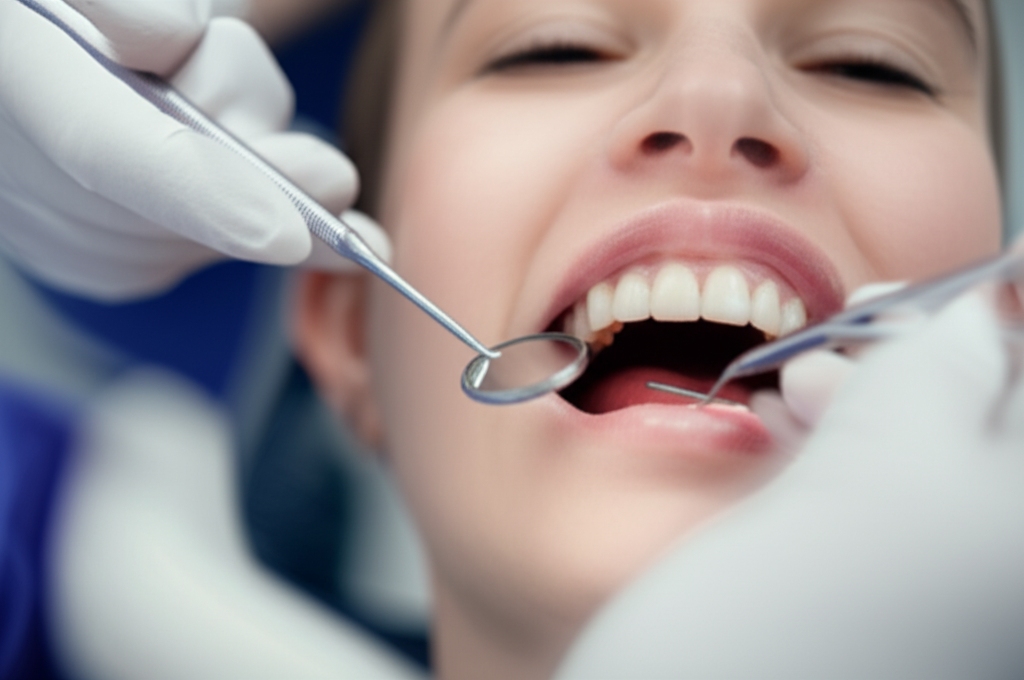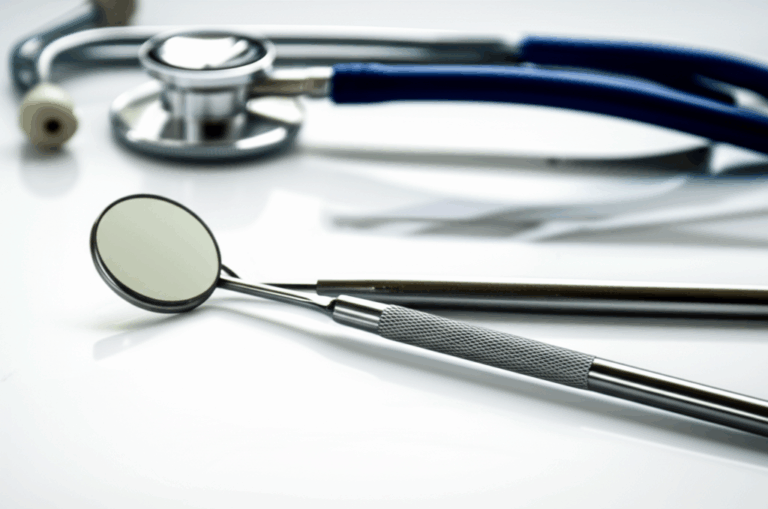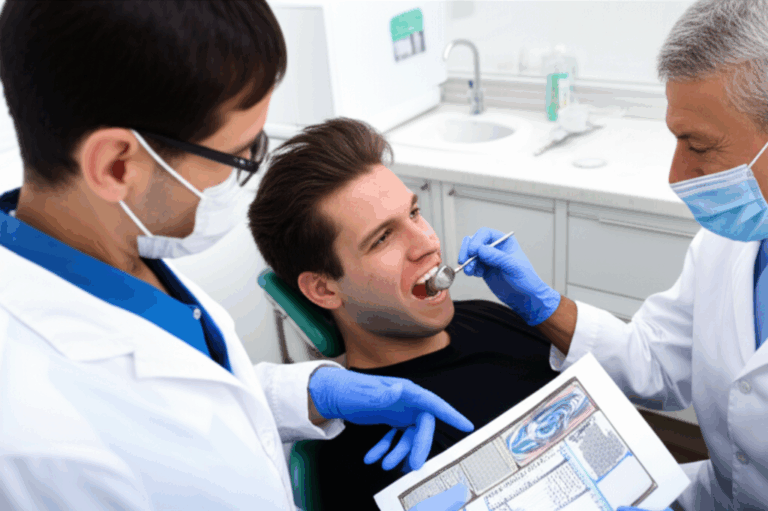
What Is a Dentist Called? Understanding Their Titles, Degrees, and Specializations
Table of Contents
- Doctor of Dental Surgery (DDS)
- Doctor of Medicine in Dentistry (DMD)
- Are They Different? The Equivalence Explained
- Key Dental Specialists and What They Do
Introduction: The Core Question Answered
When I first started looking into the world of dental care, the question seemed simple: what is a dentist called? I thought “dentist” was all there was. But pretty soon, I saw there was more to the story. Some people say “tooth doctor” while others talk about dentists using letters like DDS or DMD. If you’ve ever seen those letters after your dentist’s name and got confused, you’re not alone. Words like Doctor of Dental Surgery (DDS) and Doctor of Medicine in Dentistry (DMD) can look complicated, but they actually tell us a lot. Over the years, I found out why these names matter, where they came from, and what they stand for when it comes to training and skill.
In this article, I’ll talk you through what I wish I knew from the start: the main names used for dentists, what each degree means, where the titles come from, and what makes dental specialists and team members different. My hope is to give you a simple, clear idea of not just what a dentist gets called, but what their title means for you and your teeth.
The Two Primary Titles: DDS vs. DMD
I’ve seen two main sets of letters almost everywhere when visiting dentists or looking at their cards: DDS and DMD. Friends ask me about the difference, and I’m not surprised—they’re kind of confusing at first.
Doctor of Dental Surgery (DDS)
Let’s start with the name you’ll see most: Doctor of Dental Surgery (DDS). Whether you’re looking at a dentist’s website or reading a flyer, “DDS” pops up again and again. If your dentist is listed as “Dr. John Smith, DDS,” it means they finished dental school at a place that hands out this degree. Most dental schools in the U.S. use the DDS degree—it’s the one I see most often.
But what does DDS mean? Anyone with this degree is taught all the basics of taking care of teeth—they do fillings, crowns, help with gum problems, and can pull teeth if needed. I used to think “surgery” meant only big, scary procedures, but for dentists, it includes pretty much any fixes to teeth and gums, not just the stuff you see in movies.
Doctor of Medicine in Dentistry (DMD)
Here’s the twist. Sometimes, you see “DMD” after a dentist’s name. The first time I saw it, I thought it meant a doctor for medicine instead of teeth. But DMD stands for Doctor of Medicine in Dentistry, or sometimes, Doctor of Dental Medicine (they mean the same thing). The story goes that Harvard started using DMD when their dental school opened, and they wanted the name to sound a bit more academic. Other schools soon copied them.
The big thing to know: a DMD learns all the same things as a DDS. The classes, the hands-on training, the tests, and the skills are the same. My dentist summed it up by saying, “It’s like Coke and Pepsi—both are sodas; the label just depends on who makes it.”
Are They Different? The Equivalence Explained
Here’s the part people really want to know. Is a DMD different from a DDS? Nope—not at all.
- Training and Skills: Both DDS and DMD dentists have to finish tough, approved dental programs. They all take the same kind of classes, work with patients, and pass tough tests.
- School’s Choice: The real difference is what name the college likes, not the education.
- Approval: In the U.S., both degrees are accepted and checked by the Commission on Dental Accreditation (CODA). Dentists (like Dr. Joe Dental, who I trust) often say it doesn’t matter which letters come after the name.
So, if you see “DDS” or “DMD” on a dentist’s sign, you’re in good hands. There’s no need to pick one over the other just based on the letters.
Beyond the Generalist: Understanding Dental Specializations
When I started asking more questions about my own dental care, I found out there’s a bigger world out there—one where not all dentists do the same thing. The American Dental Association (ADA) lists out some special dental jobs, each focused on one piece of the puzzle.
Here’s what I learned about the main dental specialists, and when I or my family needed them.
Key Dental Specialists and What They Do
Each time I met one of these specialists, I was amazed by how much they knew about their own corner of dentistry. It’s kind of like seeing a heart doctor when you have a heart problem. When you need a crown or bridge, your dentist may work with a skilled crown and bridge lab to make sure everything fits just right.
Other Important Oral Health Professionals (Not Dentists, but Part of the Dental Team)
It took me a while to see how many people are there just for one trip to the dentist. It’s not only the dentist and the patient—a whole team is there to help your teeth stay healthy.
Dental Hygienist
Dental hygienists are the ones who clean your teeth, show you how to brush and floss, and often catch problems before your dentist comes in. I love how gentle and friendly most hygienists are, especially for people who get nervous.
Dental Assistant
Dental assistants help with lots of things: getting tools ready, helping the dentist during your treatment, making sure you’re comfortable, and even keeping things organized. During my last root canal, the assistant made everything feel less scary. They’re a huge help.
Dental Technician (Lab Technician)
Behind the scenes, these people make the things your dentist uses—like crowns or night guards. When I needed a crown, my dentist sent the shape of my tooth to a dental ceramics lab, and the lab made a crown that fit just right. Lab techs can also make dentures, bridges, and veneers.
Dental Administrator/Receptionist
These are the people at the front desk who help with appointments, bills, and questions. When I needed help with insurance or a quick visit, the staff here made things easy.
So, while the dentist runs the show, every team member plays a big part in looking after your mouth.
The Path to Becoming a Dentist: Education and Licensure
Before I started learning about dental care, I thought it was easy to be a dentist—just white coats and fixing teeth. But it’s way more serious.
Undergraduate Education
Dentists start with four years of college, often taking classes in science like biology or chemistry. I learned that you don’t have to study “pre-dental”—just take certain needed courses.
Dental School (DDS/DMD Program Length and Curriculum)
After college, you go to dental school for four more years. You learn everything from how the teeth and body work to how to treat patients. It’s a tough road, but it covers all parts of dentistry.
National Board Dental Examinations
After training, there’s a big test—actually, a set of them. Anyone wanting to be a dentist has to pass national written tests as well as hands-on exams. These are made sure by the dental groups (like the ADA and CODA) so that new dentists know what they’re doing.
State Licensure Requirements
Dentists also need a license from the state to work. Each state has its own steps, but all of them need the big tests, clear backgrounds, and sometimes extra training like CPR.
Post-doctoral Training for Specialists
Dentists who want to specialize—like orthodontists or oral surgeons—go through extra years of training after dental school, much like doctors. They go deeper into their chosen topic and get ready for the hard cases.
Also, don’t forget the cost. Most dental school grads end up with big student loans, showing just how much time and money goes into every dental degree.
Conclusion: The Importance of a Professional Title
After many years dealing with dental visits for my family and myself, here’s what I found. Those letters after your dentist’s name—DDS, DMD, or just “dentist”—aren’t just for show. They stand for a lot of learning, practice, and care for patients. Whether you’re getting a checkup, a crown (maybe from a dental ceramics lab), or thinking about a night guard dental lab, or even bigger needs like dental implants, the right letters tell you your provider has put in the hard work.
Knowing these names also helps when special dental work is needed. For braces, you look for an orthodontist. If you chip a tooth and need a crown, you might ask about a good lab. Lose a tooth? Now you know about dental implant specialists—or you can check if their lab partners use quality china dental lab resources for the best fit.
To sum it up, when you see the word “dentist,” you can trust you’re looking at someone with a lot of training and an official license—no matter if they’re called DDS, DMD, or another title. Wondering about your dentist’s background or training? Just ask—I’ve learned you’ll feel better about your choices if you know what all those letters really mean.
If you want to learn more, check out information from dental pros reviewed by people like Dr. Joe Dental. There are also lots of top-notch labs using the latest gear to help make your smile healthy.
This article is based on my experience, good research, and advice from real dental professionals. If you have questions about your teeth, always check with your own dentist or a specialist.








